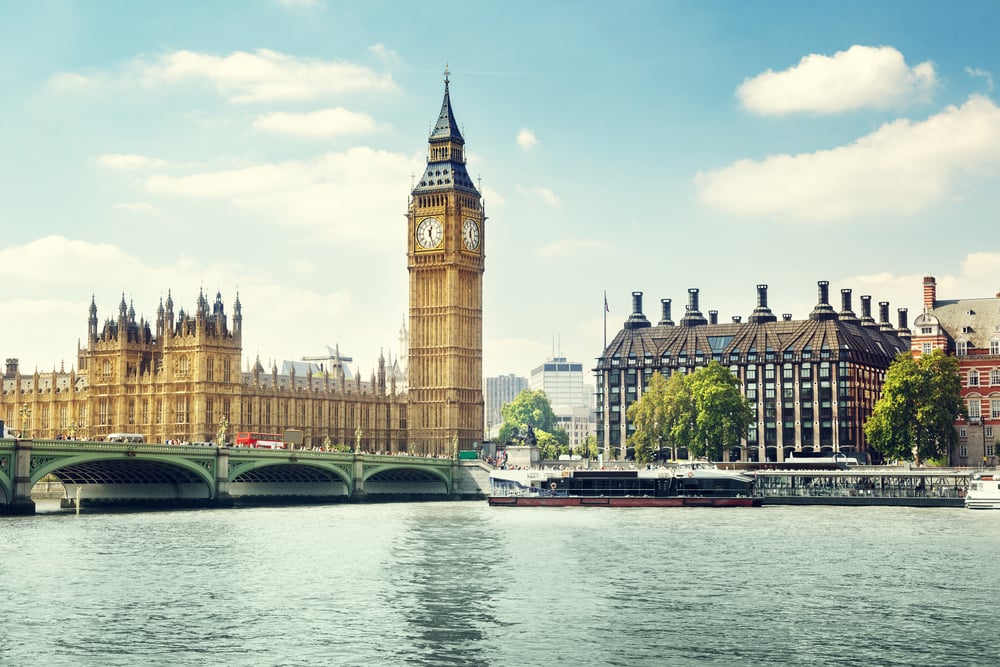
Set out below are our initial thoughts on the key measures arising from the recent Budget. You can find further detail in our Budget summary.
You can also read more in-depth Budget analysis in our Budget 2021 Blog Series.
- Budget 2021: How will Businesses be affected?
- Budget 2021: Have Capital Taxes Changed?
- Budget 2021: How will Employment be affected?
- Budget 2021: How will Personal Taxes be affected?
- Budget 2021 Misc: Land Taxes, Surcharges & More
Announcements included some unexpected measures as well as a surprising lack of changes that were widely expected. A number of effective tax rises were announced for companies and individuals, but these were mitigated to a degree by some extra reliefs. The long-mooted changes to Capital Gains Tax and Inheritance Tax didn’t materialise for now, but these remain a longer-term possibility.
After we have digested these changes further over the coming days, we will update our Tax Saving Guide and explain our thoughts on the impact of these new measures on existing and future tax planning strategies for our clients.
1. Super deduction for capital expenditure
Companies (but not unincorporated businesses) can benefit from enhanced tax relief for capital expenditure incurred during a two year period starting on 1 April 2021.
For most qualifying plant and machinery, companies can claim a deduction of 130% of the cost of the assets, effectively giving a tax saving of 24.7%. Without the relief expenditure would have been eligible for the Annual Investment Allowance (AIA), giving relief of 19%, but there is a cap on AIA claims which reduces from £1m to £200,000 on 1 January 2022. Therefore, this enhanced relief is both more valuable and larger in the scope of relief it provides for companies.
Assets that are classified as ‘special rate’ assets for capital allowances, most commonly qualifying expenditure incurred as integral features within buildings, will be entitled to a 50% claim in the year of expenditure (giving tax relief of 9.5%), instead of the standard 6%.
In the details there are rules for the treatment of sale proceeds for assets that have received enhanced relief, the eligible assets must be new and unused, and there are standard exclusions for items such as cars. However, under existing rules 100% relief can still be claimed for zero emission cars.
Action required:
Companies should consider the timing of capital expenditure projects, particularly bringing forward significant expenditure that might have otherwise been incurred beyond March 2023. When claims are made it will be important to optimise the use of Annual Investment Allowances for special rate assets and these enhanced first year allowances for other eligible expenditure.
2. Increase to corporation tax rates
Corporation tax for large businesses will increase from 19% to 25% with effect from 1 April 2023. Large businesses are those with profits of over £250k (even lower if you have more than one company under common control).
Smaller companies will continue to pay the current rate of 19% if their profits stay below £50k for a standalone company.
There will be a hybrid rate above £50k profits for those with profits in between the two levels.
Action required:
Companies need to consider their likely profitability for current and future years and consider whether income and expenses can be advanced/delayed to optimise their tax rate. Groups may want to consider the impact their structure has on tax rates for each company in the group.
3. Enhanced loss carry back rules
Losses that have been generated by a trading company or unincorporated business can ordinarily be carried back 12 months to the previous accounting period or tax year.
For a limited period of 1 April 2020 to 31 March 2022 for companies, and for tax years 2020/21 and 2021/22 for unincorporated businesses, trading losses generated can be carried back up to 3 years. This will be extremely beneficial to businesses that have struggled through the pandemic allowing them to utilise losses against profits in pre pandemic periods.
The total loss that can be carried back under these rules is capped at £2m per annum, but the existing ability to carry back losses one year remains unrestricted.
Three-year carry back of losses has been available for companies in the past, but its introduction for sole-traders and partnerships in particular is a welcome extension.
Action required:
Businesses should consider losses arising and whether these can be carried back to generate tax refunds from the previous three years.
4. VAT
The reduced rate of 5% for hospitality and leisure will continue until 30 September 2021, after which the rate will become 12.5% for a further 6 months, before returning to the Standard Rate (currently 20%) in April 2022. This is good news for those businesses in these sectors.
Action required:
Businesses in these sectors should make sure they are prepared to take advantage of these rates.
5. Freezing of personal allowances
In April 2021, the tax-free personal allowance will rise from £12,500 to £12,570 and the higher rate tax threshold, at which point the tax rate increases from 20% to 40%, will rise from £50,000 to £50,270. The additional rate threshold, the point at which the tax rate increases from 40% to 45%, will remain at £150,000 until April 2026.
Following this small rise this April, income tax thresholds will be frozen until 2026.
Because the rates will not be increasing with inflation in future, as an individual's income grows some will be pulled within the higher rate tax band, or into a tax band when previously they were not.
Action required:
Company owners should consider the impact on extracting profits from their business, in light of these proposed changes as well as the changes to Corporation Tax.
6. No changes to Inheritance or Capital Gains Tax
Two more key thresholds will also be frozen until 2026.
There are no changes to the capital gains tax rates, currently ranging from 10% to 28%. Furthermore, the capital gains tax annual exemption will remain at £12,300.
The inheritance tax allowance will remain at £325,000. The additional main residence band of £175,000 will also remain the same.
The frozen rates and bands will result in some paying higher taxes than they would have done had the thresholds increased in line with inflation.
Action required:
Although no real changes were made in the Budget, industry expectation is that changes to CGT could arise in the short to medium term following review by the Office of Tax Simplification. Entrepreneurs who are thinking about disposing of their business should consider whether to bring this forward to take advantage of current rates and reliefs.
7. Consultation on R&D tax reliefs
Promising news on the consultation launched with regards to R&D tax relief. This will cover whether the schemes should be amended to remain internationally competitive and if the current rates of relief are appropriate.
There is potential to widen the scope of what qualifies for the relief, some suggestions are whether cloud/data costs should now be allowable expenditure.
The enhanced 3 year loss carry back will create additional opportunities for how companies can best utilise the R&D relief.
Action required:
Businesses that have not yet claimed relief for R&D should consider whether this valuable relief can apply to them.
8. Coronavirus support schemes
Furlough
The Government has announced that the Furlough scheme will be extended until the end of September 2021. Employers will continue to be able to claim 80% of their employees’ wages until the end of June, but this will reduce to 70% in July and 60% in August and September. As now, employees must continue to be paid at least 80% of their wages for time on furlough, so employers’ net cost of employees remaining on furlough will gradually increase over the summer. This was originally announced before the budget and will be welcome news to many businesses affected by the ongoing pandemic.
Self-Employed
It was also announced that the self-employed income support scheme, which allows self-employed individuals whose business has been affected by the pandemic to claim from the Government, has been extended. The fourth grant will cover February to April, worth 80% of average trading profits up to £7,500. Those newly self-employed in the 2019/20 tax year will be entitled to claim for the first time.
Action required:
Businesses and owners should consider what support measures they can obtain. Further details on support measures can be found on our COVID page.
9. Increased HMRC crackdown on fraud & avoidance
The Chancellor announced that up to 1,000 new HMRC officers will be put in place to target fraud by individuals and businesses claiming under various COVID support measures. This is a clear message that taxpayers should ensure they are entitled to benefit before claiming any support measure. If in doubt, please get in touch.
Action required:
Businesses that have made claims, or are considering making claims, under the COVID support measures, should seek professional advice to ensure they are fully compliant.
10. Residential SDLT extension
The temporary extension to £500k for the 0% band on residential property acquisitions is being extended to 30 June, with a taper of the limit to £250k for a further 3 months, before returning to the normal limit of £125k on 1 October.
Action required:
Individuals who are purchasing residential property should consider how these reduced rates will apply to them and accelerate completions (where possible).
Find out more about Budget 2021
If there are any of these issues about which you require further information or expert advice tailored to you and your circumstances, please get in touch and we'll be happy to help.

Scott Burkinshaw
I am Head of Business Taxes at Shorts, where I lead our specialist Radius team focusing on R&D tax relief. As a Chartered Tax Adviser with over a decade of experience at national and international firms, I work with businesses and their owners to provide strategic corporate and personal tax advice. My expertise includes R&D tax relief, business disposals and acquisitions, and long-term tax planning, helping clients achieve their goals in the most efficient way.
View my articlesTags: Business Taxes
